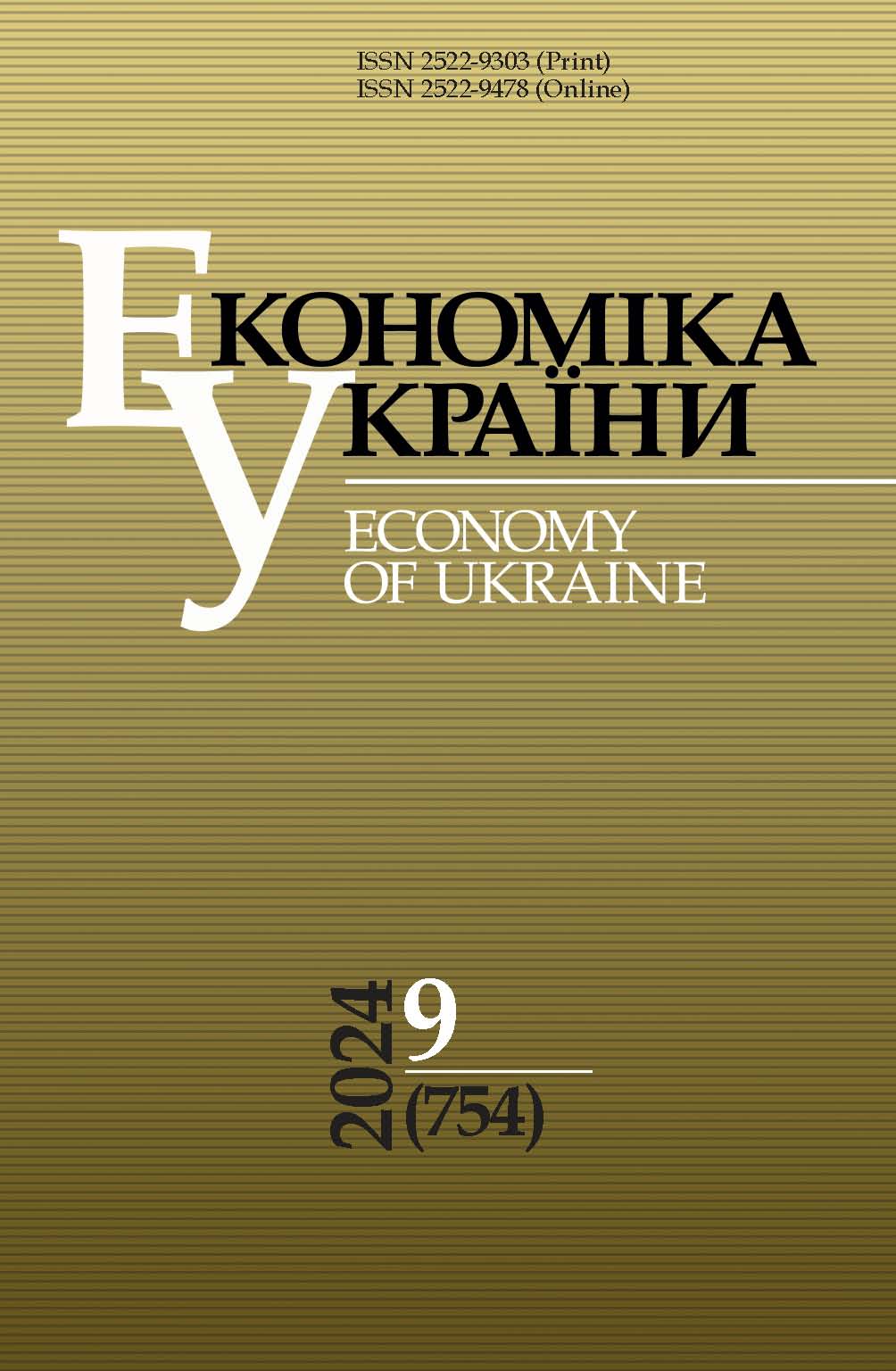THEORETICAL FOUNDATIONS OF COOPERATION IN THE WORKS OF M. TUGAN-BARANOVSKY AND THEIR RELEVANCE UNDER GLOBALIZATION PROCESSES AND EUROPEAN INTEGRATION
DOI:
https://doi.org/10.15407/economyukr.2024.09.041Keywords:
cooperative legacy; cooperative principles; evolution; globalization; European integrationAbstract
The prerequisites for the emergence of cooperation as a form and mechanism for leveling antagonistic economic relations of the capitalist system are revealed, with characterizing the main theoretical lines inherent in the historical development of the theoretical basis of the cooperative idea, their legal reflection and implementation in practical activity in the context of the theoretical foundations of cooperatives, their place in economic self-defense and impact on the evolution of the social character of the peasantry, that are substantiated in the works of the outstanding Ukrainian economist and sociologist M. Tugan-Baranovsky. It has been proven that the differences in the motivation of the association of economic entities, the mechanism of economic and financial relations, which determine the non-capitalist character of cooperative entities, as the scientist emphasized, ensured cooperatives a higher survival rate under the challenges of the 20th century compared to other organizational and legal forms.
The results of scientific research into the impact of the globalization of economy and markets on the evolution of cooperative principles and the structure of cooperative entities are systematized, various approaches to the relationship between the logic of cooperative values and the logic of practicality, its enshrinement in cooperative legislation and impact on the development of the cooperative movement are analyzed. In this context, the reasons for the lack of dynamic development of agricultural cooperatives in Ukraine are identified, and ways to eliminate them are substantiated as an important factor in the formation of a farming-type economic activities, without which small and medium-sized Ukrainian farms, in the event of the country becoming a member of the EU, will not "fit" into the European single market and the Common Agricultural Policy. They will be pushed out of agricultural production with corresponding negative consequences for ensuring food security and food sovereignty of society, preservation of population distribution pattern and rural development, which is contrary to the Sustainable Development Goals.
References
Bowen, E. (1953). Cooperative Road to Abundance: the Alternative to Monopolism and Communism. New York, Henry Shuman. 169 p.
Tugan-Baranovsky, M. (1994). Political economy: a popular course. Kyiv. 262 p. [in Ukrainian].
Tugan-Baranovsky, M. (1916). Social foundations of cooperation. Moscow. 512 p. [in Russian].
Tugan-Baranovsky, M. (2010). Cooperation, its nature and purpose. In: Agricultural cooperation. Selected works. L.P. Horkina (Ed.). Kyiv. 776 p.
Lafleur, M., Merrien, A.-M. (2012). Impact socio-économique des coopératives et des mutuelles. 35 р. URL: https://www.irecus.org/_files/ugd/135ae8_0279a6ffe84940698f354c571c32c0e2.pdf
Lévesque, B. (1981). Coopératives et socialisme au Québec: perspectives pour l’an 2000. Interventions critiques en économie politique. No. 6. P. 193-209. URL: http://classiques.uqac.ca/contemporains/levesque_benoit/Coop_et_socialisme/Coop_et_socialisme_texte.html
Lévesque, B., Bouchard, M., Grant, M., Desrochers, L., Jacques, F. (1997). Desjardins: une entreprise et un mouvement? (Les leaders du Québec contemporain) Textes présentés lors du 9e colloque sur les leaders contemporains tenu à l’Université du Québec à Montréal en mars 1996. Comprend des réf. bibliogr. Presses de l’Université du Québec. 378 p. URL: https://extranet.puq.ca/media/produits/documents/733_9782760522367.pdf
Levesque, B., Cote, D. (1995). Le changement des principes coopératifs à l’heure de la mondialisation: à la recherche d’une méthodologie. In: Coopératives, marchés, principes coopératifs. A. Zevi, J.-L. Monzon Campos (Eds.). Brussels, De Boeck – Wesmael/CIRIEC. P. 1-14.
Zinovchuk, V. (Ed.) (2001). Basics of agricultural service cooperation. Kyiv. 464 p. [in Ukrainian].
Filippi, M., Frey, O., Mauget, R. (2008). Les coopératives agricoles face à l’internationalisation et à la mondialisation des marchés. RECMA –– Revue international de l'économie sociale. No. 310. P. 31-51. https://doi.org/10.7202/1021102ar
Mauget, R. (2008). Les coopératives agricoles entre territorialisation et mondialisation. Pour. No. 1-2 (196-197). P. 174-178. https://doi.org/10.3917/pour.196.0174
Zinovchuk, V. (Ed.) (2022). Agricultural cooperatives in Ukraine: to be or not to be? What is the future of agricultural cooperatives? Zhytomyr. 275 p. P. 172-188 [in Ukrainian].
Malik, M., Shpykulyak, O., Mamchur, V. et al. (2019). Development of agricultural cooperation and integration processes in the agrarian sector of economy. Monograph. M.Y. Malik (Ed.). National Scientific Centre «Institute of Agrarian Economics». Kyiv. 374 p. URL: http://feb.tsatu.edu.ua/wp-content/uploads/2019/06/Kooperatsiya-2019-r-formatovana-nov.pdf [in Ukrainian].
Kutsyk, P., Semiv, S., Kutsyk, V., Poliakova, J., Shevchyk, B. (2023). State, problems, and priorities of the development of agricultural cooperation in Ukraine in the context of modern challenges. Financial and Credit Activity Problems of Theory and Practice. Vol. 1. No. 48. P. 282-297. https://doi.org/10.55643/fcaptp.1.48.2023.3956 [in Ukrainian].
Ramanauskas, J., Žukovskis, J., Zinovchuk, V. (2017). Cooperatives and Producer Organizations: European Experience and Its Lessons for Ukraine. In: Cooperative readings: 2017. Proc. All-Ukrainian Sci.-Pract. Conf. (Zhytomyr, September 2, 2017). Zhytomyr. 216 p. P. 27-36 [in Russian].
Downloads
Published
How to Cite
Issue
Section
License
Copyright (c) 2024 Publisher PH "Academperiodyka" of the NAS of Ukraine

This work is licensed under a Creative Commons Attribution-NonCommercial-NoDerivatives 4.0 International License.



